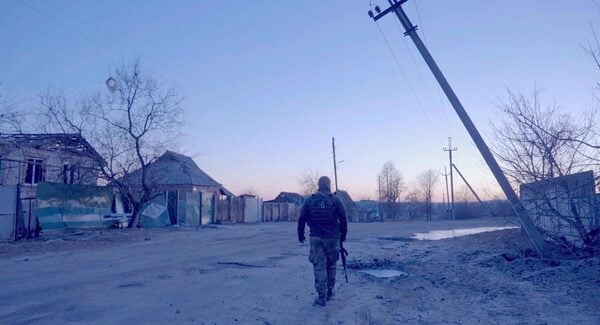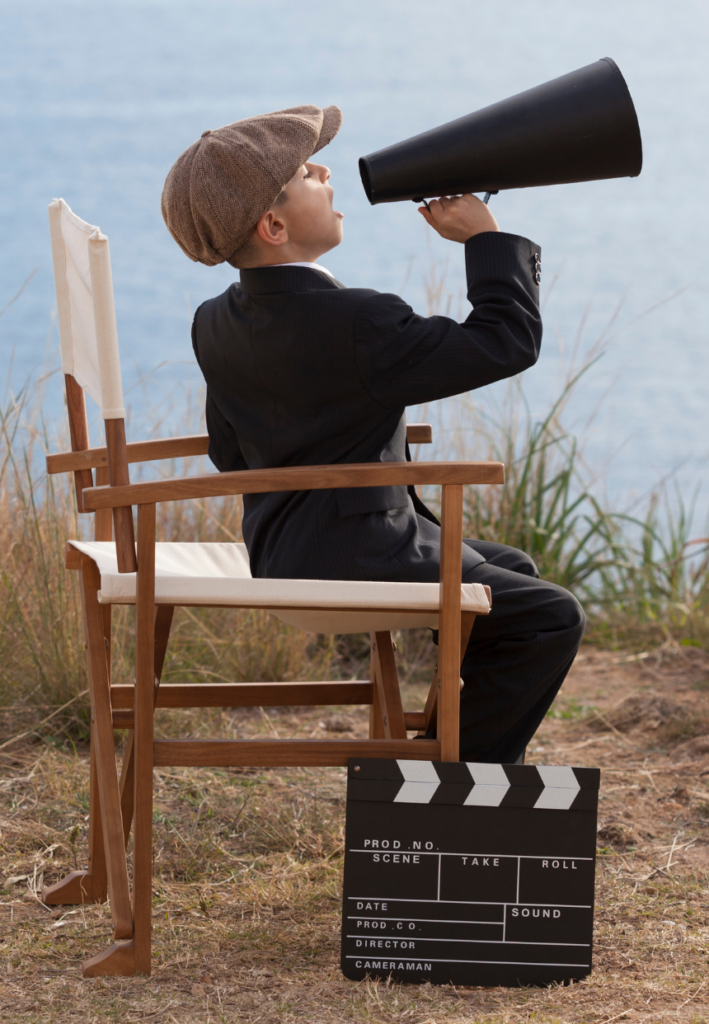Xackery Irving’s journey through Ukraine for his documentary “Brace for Oblivion” shows why trust and instinct are a filmmaker’s greatest tools.
by Carole Dean
There are moments in filmmaking when you find yourself pulled—not by budgets, not by market trends, not even by politics—but by people.

Those moments become the compass for your work. My longtime friend, Roy W. Dean Grant winning filmmaker Xackery Irving, reminded me of this in our recent The Art of Film Funding Podcast.
His upcoming new documentary Brace for Oblivion is a chronicle of the Ukrainian front lines, filmed over three years with seven citizen soldiers. It is not a “war film,” as he insists, but a film about humanity.
The Story Chooses You
“I didn’t travel to Ukraine with a big plan,” Xackery told me. “I was pulled by the people. Civilians, volunteers, and soldiers who had dropped everything to defend their homes.”
Every filmmaker knows this feeling. A story knocks, and you recognize it as yours to tell. That recognition is not logical—it’s instinctual. You don’t choose the story. The story chooses you.
And as Xackery shared, once you’re immersed in that story vortex, the chaos can lift you. You learn when to take control and when to surrender to the moment.
Building Trust in Extraordinary Circumstances
How do you earn the trust of people whose lives are on the line? For Xackery, the answer was simple: make it “our story.”
He explained:
“I always referred to this as our story with the subjects. I wanted to engage with them so I could understand the moments, the stakes, and everything happening from their perspective.”
That shift—from filmmaker to collaborator—is what opened doors. The soldiers weren’t just subjects; they were partners in storytelling. Indie filmmakers can take this to heart: trust is not granted, it’s built daily by how you conduct yourself, by the respect you show, and by being present beyond the lens.
The Emotional Weight of Storytelling
Logistics are hard enough when you’re filming alone in a war zone, but the greatest challenge was emotional.
“You form connections,” Xackery said quietly. “Some of them didn’t make it. Some of them are missing. And I carry that back with me.”
In Eastern Europe, there’s a phrase: “May their memory be eternal.” This became part of the text of his film—a way to honor both the fallen and the living.
Every documentarian knows this truth: the camera captures, but the heart carries.
The Discipline of Filming
Looking back on his first film, The Roy W. Dean Grant winning American Chain Gang, Xackery reflected:
“I was 25 when I made it, and if I could do it again, I’d film more. Stick to your story like glue. Keep filming, even down rabbit holes, because you’ll be surprised how they pay off.”
For indie filmmakers, this is gold. Production value isn’t about having ten departments. It’s about relentless commitment to the story. Self-sufficiency—what I call “a light footprint”—is often your greatest strength.
Editing a Thousand Hours of Humanity
When I asked about his edit process, Xackery smiled. “We edited emotional arcs, not just events and scenes. The goal was immersion—so the viewer feels the chaos, the waiting, the fear, the resolve. Not explanation, but experience.”
This is where documentaries live—in the edit room, in shaping the raw truth into something audiences can feel in their bones.
Surviving a Shifting Marketplace
The market for independent docs is turbulent. Consolidation of streamers, political climates, and shrinking acquisition budgets have made distribution tougher than ever. But Xackery was clear:
“The only thing we can control is how compelling our story is. If it’s strong enough, it will build its own mass.”
That is advice every indie filmmaker should tattoo to their heart. The world may change, but the demand for powerful stories never goes away.
Why Filmmakers Do This Work
I told Xackery something when he was first filming in Ukraine that he still remembers: when a subject speaks in a moment that may be their last, every word has infinite weight.
That is why artists like Xackery do this work. To capture memory, humanity, and truth so they live beyond us. As he put it:
“Even if it’s just for the subjects’ grandchildren to see one day, you want the story to be felt. Not explained. Felt.”
And that, dear filmmakers, is the calling of our art.

Carole Dean is president and founder of From the Heart Productions; a 501(c)3 non-profit that offers the Roy W. Dean Film Grants and fiscal sponsorship for independent filmmakers.
She is creator and instructor of Learn Producing: The Ultimate Course for Indie Film Production. Essential classes for indie filmmakers on how to produce their films.
She hosts the weekly podcast, The Art of Film Funding, interviewing those involved in all aspects of indie film production. She is also the author of The Art of Film Funding, 2nd Edition: Alternative Financing Concepts. See IMDB for producing credits

